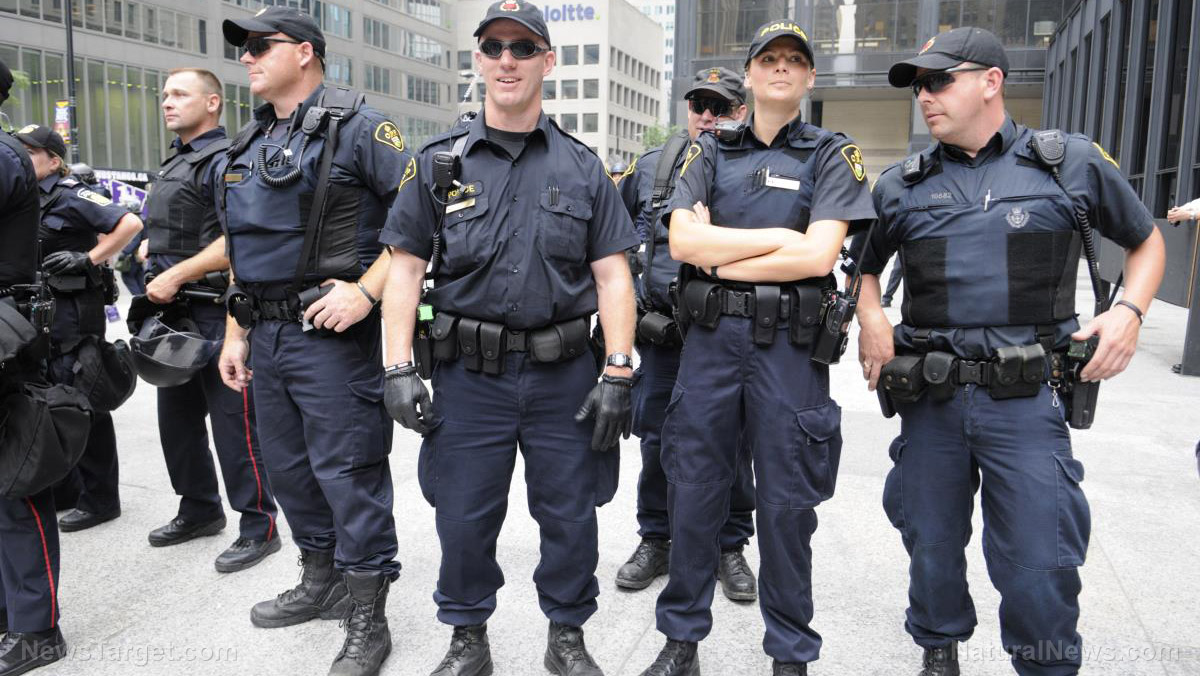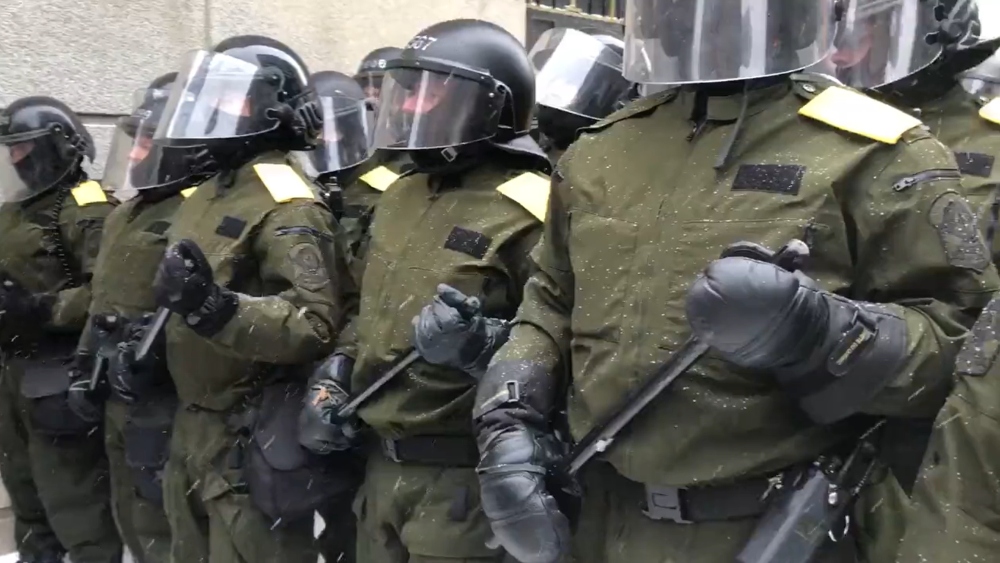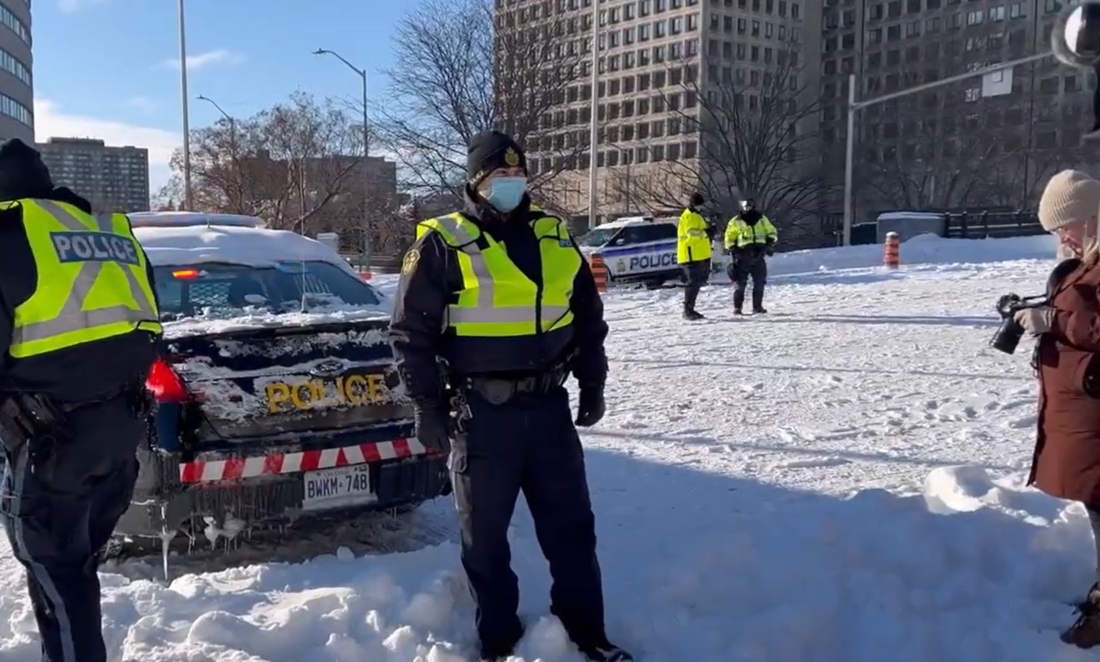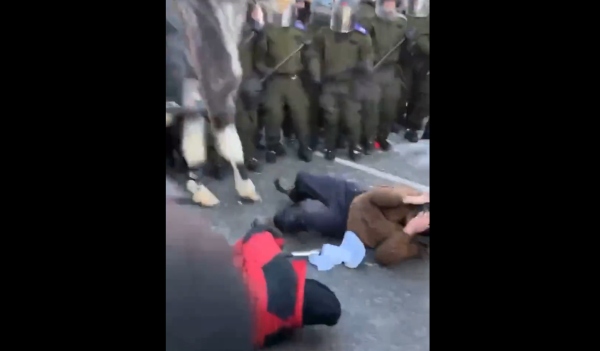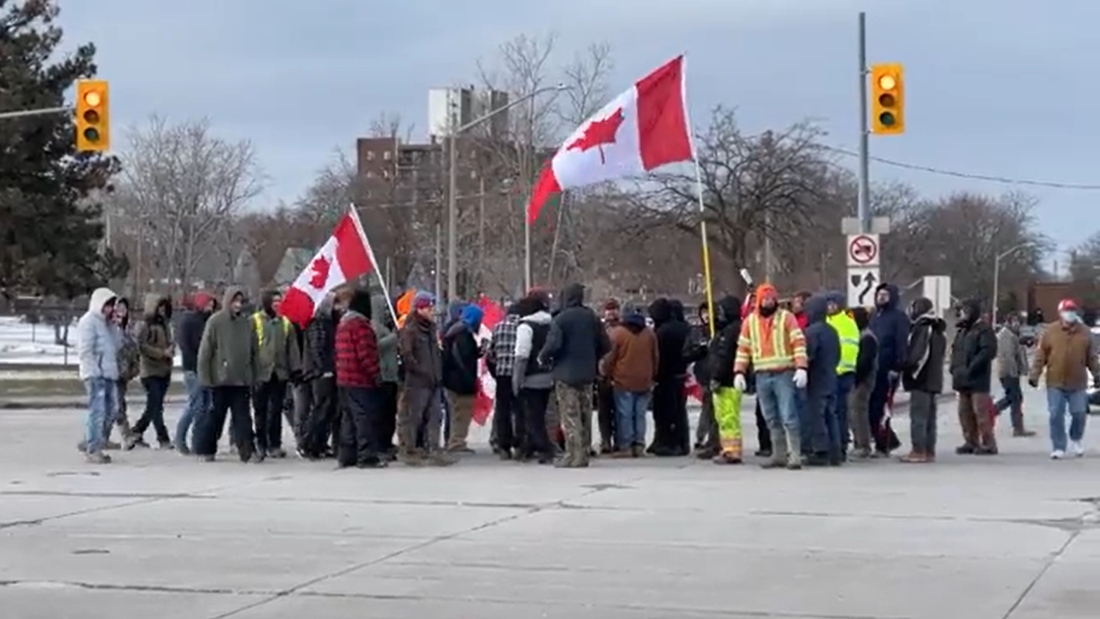Cities now walking back plans to defund law enforcement as crime rates soar
06/03/2021 / By Ramon Tomey

Many cities in America are now restoring funding to their police departments – if not proposing bigger budgets for them. The sudden rise in crime has called for cities to inject much-needed funding for law enforcements.
This new trend is a complete 180-degree turn from last year’s calls to “defund” police departments during Black Lives Matter (BLM) protests across the country.
Most of these Democrat-led cities gave in to BLM protesters’ demands to “defund” law enforcement. The call came after George Floyd died at the hands of law enforcement in Minneapolis in May last year. Anti-police activists have used the term “defund” in a number of ways – such as shrinking the size of current police forces and shifting money allocated for law enforcement to social services.
In New York City, Mayor Bill De Blasio said he would reinstate $92 million to build the 116th Precinct Station in Queens after scrapping it last summer. Initially, the mayor and the city council voted to rescind the project alongside an operating budget reduction at the New York Police Department (NYPD). The NYPD’s budget went from about $5.6 billion to $5.3 billion – with the money saved going to youth programs and other social services.
But according to data from Jan. 1 until May 23, the Big Apple saw 531 shootings. This was almost double the number of shooting incidents from last year, which only saw 295. De Blasio said during an April 2021 news conference that the initial cuts were a result of his response to “the environment at that moment.” He added that because of the federal stimulus package, he can now put forward a plan to restore about half of the 2020 budget cuts.
Meanwhile, Baltimore Mayor Brandon Scott proposed a $27 million increase in the police budget. His proposal is an entirely different tune compared to his stance before taking office. Back in 2020, Scott was successful in pushing for a $22.4 million reduction to the police budget. The money saved was also redirected to social services – something he and other council members wanted.
In an interview, Scott cited three main reasons why the $27 million should be allocated toward law enforcement. According to the Baltimore mayor, rising police pensions and health insurance costs necessitated the larger budget. He added that a mandate for the Baltimore Police Department to overhaul its policies and training made any budget cut difficult. The mandate came as a result of a 2017 agreement with the Department of Justice following the death of Freddie Gray while in police custody two years prior.
A sudden spike in crime prompted cities to restore funding for their respective police departments
Just like New York City and Baltimore, the city of Oakland in California reallocated funds meant for law enforcement to social services. Last summer, it slashed $14 million from the Oakland Police Department (Oakland PD) to fund a mental health hotline and shift some police functions to other departments. In December 2020, Oakland Mayor Libby Schaaf asked the Oakland PD for an additional $15 million cut due to a budget crunch.
Following pleas by the police chief and complaints from Oakland residents about crime, the city council unanimously voted to restore some of the previous cuts. Last April 12, the city council agreed to bring back $3.3 million of the $29 million total amount slashed from the Oakland PD’s budget. Schaaf also proposed that the police department’s budget be increased by $24 million.
With murder rates rising by double digits in many cities, officials have found it difficult to abide by the “defund” mantra. According to the Federal Bureau of Investigation‘s Quarterly Uniform Crime Report, homicides rose by 32.2 percent in cities with a population of at least one million during the last three months of 2020. Criminologists and law enforcement officials attributed this rise to pandemic stress and police pullback during protests in early 2020.
BLM’s call to defund law enforcement coincided with COVID-19 shutdowns accompanied by smaller tax revenue. But with an economic revival and federal stimulus funding, many cities now have enough budgets to funnel back into law enforcement. Some city and police officials expressed concern that changes to reform policing may be costly to implement. Meanwhile, neighborhood groups warned that police budget cuts would undermine crime response.
Former Philadelphia Mayor Michael Nutter said: “It’s hard to have a serious conversation with folks about cutting a police department’s budget when crime is up.”
Police Executive Research Forum Executive Director Chuck Wexler shared Nutter sentiments. The head of the law enforcement think tank said: “If you want to fix policing – you have to hire cops, train them differently and hold them accountable. The notion that taking away resources is going to improve policing is ridiculous.”
Visit Shootings.news to read more reports about the effects of defunding law enforcement.
Sources include:
Submit a correction >>
Tagged Under:
anti-police, Black Lives Matter, blm protests, budget cuts, chaos, civil unrest, collapse, crime, Democrat cities, law enforcement, lawless, police departments, police reform, policing, rising crime rates, social services, violence
This article may contain statements that reflect the opinion of the author
RECENT NEWS & ARTICLES
COPYRIGHT © 2017 PoliceViolence.News
All content posted on this site is protected under Free Speech. PoliceViolence.News is not responsible for content written by contributing authors. The information on this site is provided for educational and entertainment purposes only. It is not intended as a substitute for professional advice of any kind. PoliceViolence.News assumes no responsibility for the use or misuse of this material. All trademarks, registered trademarks and service marks mentioned on this site are the property of their respective owners.




